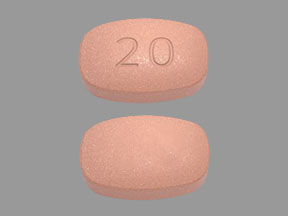Nourianz Disease Interactions
There are 4 disease interactions with Nourianz (istradefylline).
Istradefylline (applies to Nourianz) severe hepatic impairment
Major Potential Hazard, Moderate plausibility. Applicable conditions: Liver Disease
Istradefylline has not been studied in patients with severe hepatic impairment (Child-Pugh Class C), and its use should be avoided in these patients. In patients with moderate hepatic impairment (Child-Pugh B), the steady-state exposures were predicted to be 3.3-fold higher. Therefore, the maximum recommended dosage of istradefylline in patients with moderate hepatic impairment (Child-Pugh B) is 20 mg once daily. Patients should be closely monitored for adverse events when receiving treatment. No dose adjustment is needed in patients with mild hepatic impairment.
Istradefylline (applies to Nourianz) end stage renal disease
Moderate Potential Hazard, Moderate plausibility. Applicable conditions: Renal Dysfunction
Istradefylline has not been evaluated in patients with end-stage renal disease (ESRD) (CrCl <15 mL/min) or ESRD requiring hemodialysis. Caution is advised if prescribed in these patients. No dosage adjustment is needed in patients with mild, moderate or severe renal impairment.
Istradefylline (applies to Nourianz) psychotic disorders
Moderate Potential Hazard, Moderate plausibility. Applicable conditions: Psychosis
Because of the potential risk of exacerbating psychosis, patients with a major psychotic disorder should not be treated with istradefylline. Consider dosage reduction or discontinuation if a patient develops hallucinations or psychotic behaviors while taking this drug.
Istradefylline (applies to Nourianz) smoking
Moderate Potential Hazard, Moderate plausibility.
Tobacco smoking decreased systemic exposure to istradefylline by 38% to 54%, which may decrease efficacy. Therefore, the recommended dosage in patients who smoke 20 or more cigarettes per day (or the equivalent amount of another tobacco product) should be increased to 40 mg once daily.
Switch to professional interaction data
Nourianz drug interactions
There are 193 drug interactions with Nourianz (istradefylline).
Nourianz alcohol/food interactions
There are 2 alcohol/food interactions with Nourianz (istradefylline).
More about Nourianz (istradefylline)
- Nourianz consumer information
- Check interactions
- Compare alternatives
- Pricing & coupons
- Reviews (3)
- Drug images
- Side effects
- Dosage information
- During pregnancy
- FDA approval history
- Drug class: miscellaneous antiparkinson agents
- En español
Related treatment guides
Drug Interaction Classification
| Highly clinically significant. Avoid combinations; the risk of the interaction outweighs the benefit. | |
| Moderately clinically significant. Usually avoid combinations; use it only under special circumstances. | |
| Minimally clinically significant. Minimize risk; assess risk and consider an alternative drug, take steps to circumvent the interaction risk and/or institute a monitoring plan. | |
| No interaction information available. |
See also:
Further information
Always consult your healthcare provider to ensure the information displayed on this page applies to your personal circumstances.


